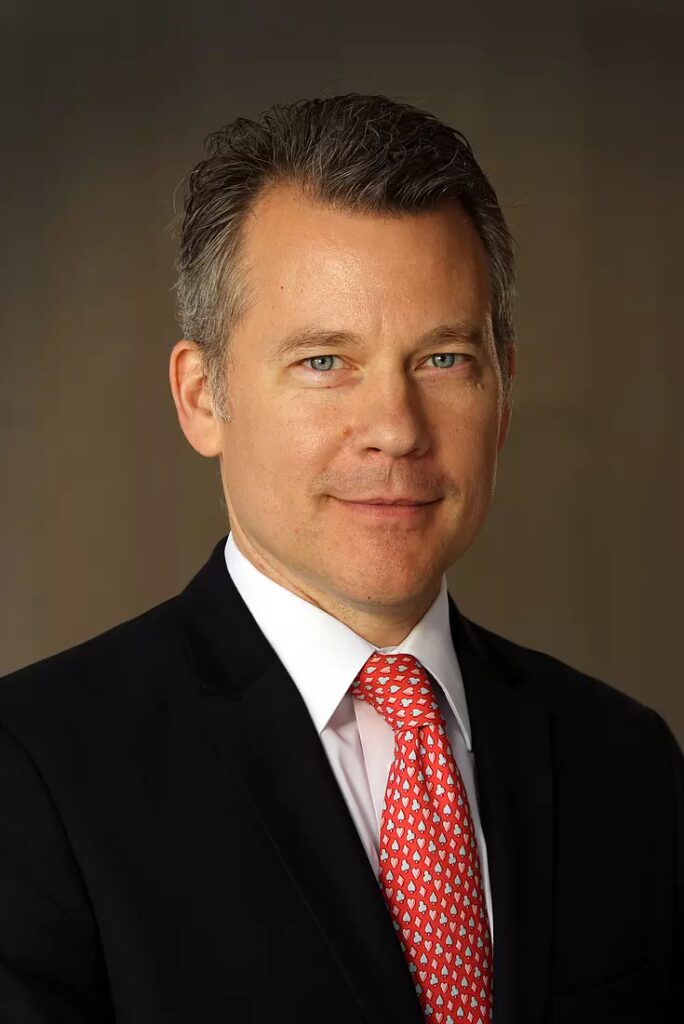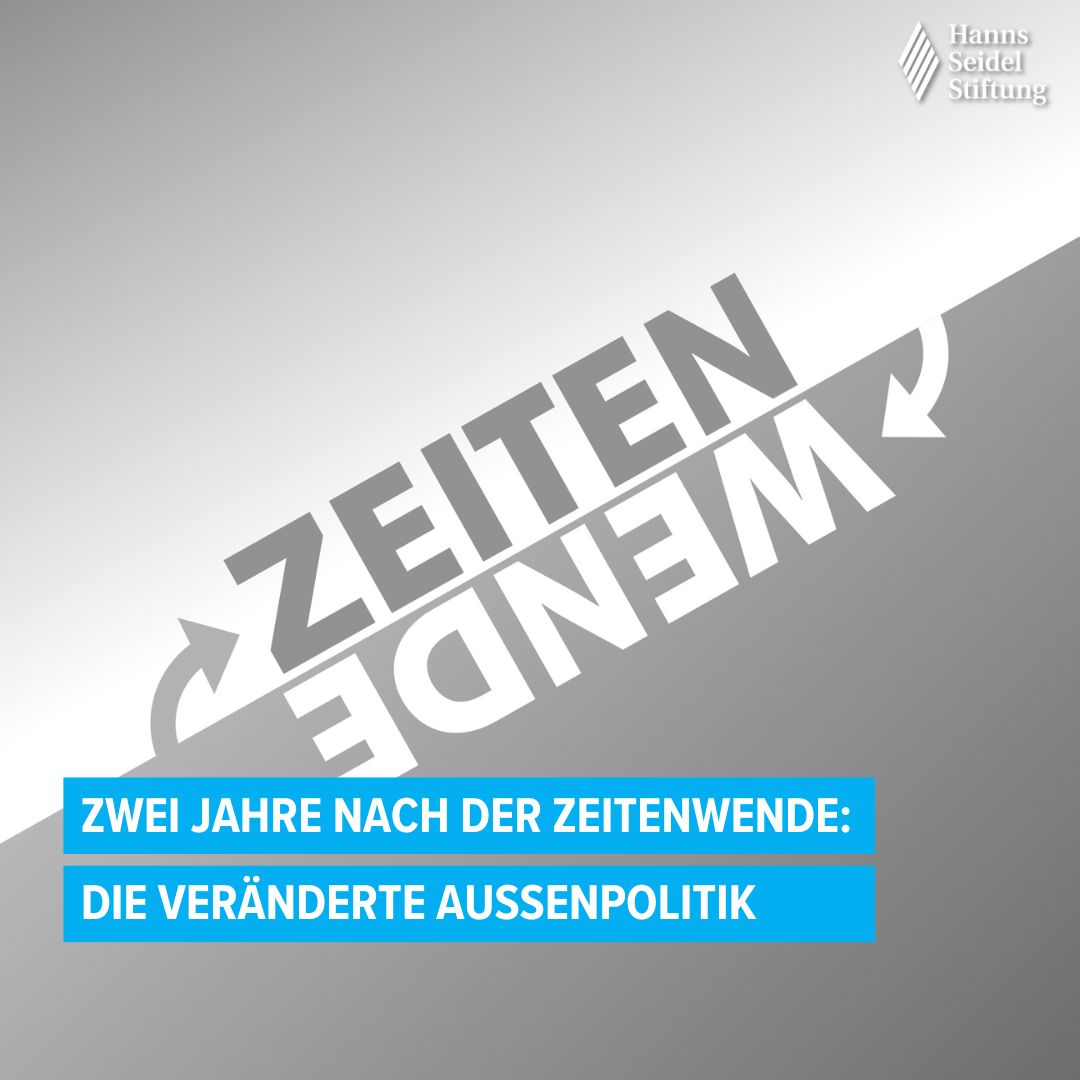For your attention, the translation of the of the article “Deutschlands “Zeitenwende”: Eine Bilanz nach zwei Jahren” by Andrea Rotter, Head of Foreign Policy and Security at our partners at the Hanns Seidel Foundation, which is extremely relevant in the context of recent events.
In the course of a few days in February 2022, the Russian war of aggression against Ukraine dramatically changed not only the European security order, but also Germany’s foreign and security policy. At least this was the statement made by Chancellor Olaf Scholz, who on February 27 called for a “turning point” in the German Bundestag and thus presented the prospect of a more responsible role for Germany not only to the German population but also to international partners. Two years later, the results are mixed.
“We are at a turning point. This means that the world afterwards will not be the same as before. […] We are taking on the challenge that time has set before us – soberly and decisively”said Federal Chancellor Olaf Scholz in his government statement to the German Bundestag on February 27, 2022, three days after the Russian invasion of Ukraine.
In view of Vladimir Putin’s violation of international law, which few could have imagined at the time, Scholz identified five mandates for the Federal Republic of Germany: support for Ukraine, a sanctions regime against Russia’s war of aggression, strengthening NATO’s deterrence and defense posture, adequate equipment for the Bundeswehr through a “special fund,” and a new energy policy independent of Russia. In other words, Germany has announced a radical paradigm shift in its foreign, security, defense, and energy policies, which has pleasantly surprised many German and international observers. The long-standing demands of experts and our partners, such as investing at least two percent of our gross domestic product (GDP) in defense, seemed to be finally being realized.
In financial terms, the turnaround is on the verge
Looking back two years and taking stock, the picture is mixed. In 2024, Germany will finally reach the two percent goal set by NATO and, for the first time in more than 30 years, will spend about 2.1 percent of GDP on defense, amounting to about 73 billion euros. This is an important signal, especially from the Alliance’s point of view, but it could expire as early as 2028, given that our defense budget will only be raised above the two percent mark through a “special fund” that was announced as a lower limit, not a target, at the last NATO summit in Vilnius in 2023. The financial basis for Germany’s turnaround, the “special fund,” is expected to be exhausted by the end of 2027, so Germany is now headed for a financial hole in its security and defense policy of €20 billion or more by 2028. While the “special fund” is used to finance the replacement of weapons for the Bundeswehr that have been delivered to Ukraine, this raises questions about closing capability gaps and the need for new acquisitions for the Bundeswehr. This is also due to Germany’s contribution to NATO’s deterrence and defense and its reliability to its partners. Berlin has already made strong commitments to strengthening NATO’s eastern flank, such as the deployment of a combat brigade in Lithuania. In short, the sustainability of the tipping point will become apparent in the coming years in the Bundeswehr’s financial resources.
Many decisions were made
Of course, defense spending is not the only indicator of the realization of the “turning point.” At the political and strategic levels, Germany has indeed set new priorities in many areas, such as the first German National Security Strategy, or a change in attitude toward arms exports, especially the supply of heavy equipment to Ukraine, or the recognition of the need to create a competitive defense industry base with sufficient production capacity. The war in Ukraine has also triggered a rethinking among the population, as the latest poll by the Bundeswehr’s Center for Military History and Social Sciences shows: The majority of the German population is in favor of strengthening the Bundeswehr, whose image has never been better, is in favor of German support for Ukraine, and recognizes the value of NATO for its own security. However, it remains to be seen whether this will lead to the necessary and sustainable changes in our strategic culture. In any case, it is clear that there is a need for better and more focused strategic communication that focuses on and explains security policy challenges and the need for action, rather than intra-coalition disputes.
Changes needed: from reaction to action
The biggest criticism of the German turn is probably related to its gradual implementation, which is partly justified and partly unjustified. Structural changes, such as in the procurement system, take time, as does the introduction of a new mentality in line with the requirements of a security policy that permeates all political and social circles. However, the rapid shift away from Russian gas and oil has certainly demonstrated how quickly Germany is able to respond to changing conditions. Our allies have the same expectations of Germany’s turnaround in security policy. However, this is largely the result of strong internal and external pressures, although the latter, in particular, will not diminish due to the security situation. After its initial reluctance, Germany has become Ukraine’s second largest financial and military supporter after the United States, at least in absolute terms.
In terms of GDP, it is the countries of Northern Europe, Central and Eastern Europe that play a leading role here due to their historically shaped perception of threats and a clear understanding of Ukraine’s central role in the European security order. Realizing the turning point requires resilience, determination and foresight, as well as a willingness to take responsibility and leadership, especially in the European and transatlantic context – especially when the United States is a reliable partner and Brussels is trying to reach consensus on security and defense policy. So there is certainly reason to appreciate the steps that were taken initially, which confronted Germany with unpleasant realities, provided that we also take a self-critical look at the challenges that lie ahead.
A look from the outside
In the “Outside View” section, the Hanns Seidel Foundation looks beyond its own “national horizons” and asks international experts to express their views on issues related to foreign and security policy.

A view from France
While Germany prioritizes short-term goals, such as increasing military stockpiles and supplying weapons to Ukraine, France regrets the lack of long-term vision, which is damaging the European defense industry.
Implementation and Progress of the German “Turning Point” (a view from France))
Russia’s invasion of Ukraine on February 24, 2022, and its consequences for Europe were a wake-up call for Germany, marking a new era in foreign and defense policy. This so-called “turning point” and its most striking example, the creation of a special fund for the modernization of the Bundeswehr in the amount of 100 billion euros, came as a surprise to the German population and to most European countries, especially France. While Paris initially reacted positively, as it had been calling for Berlin to take on more defense responsibilities for years and hoped to revive joint defense programs, it soon became disillusioned with Germany’s decisions to expand its military capabilities. In fact, most of the new funds were used to purchase arms from third non-EU countries, to the detriment of existing or planned German programs. This is largely due to the difficulties faced by the German administrative apparatus in dealing with the sudden and sharp increase in orders and funding, as well as a different perception of threats. Thus, while Germany prioritizes short-term goals, such as increasing military stockpiles and supplying weapons to Ukraine, France regrets the lack of long-term vision, which is detrimental to the European defense industry.
A new distribution of roles in Europe?
Nevertheless, it is important to recognize the changes and progress made over the past 24 months. Thus, Germany, which initially refused to supply Ukraine with heavy equipment and instead offered to donate 5,000 helmets, has now become Kyiv’s second largest financial and military donor after the United States. Berlin has also demonstrated that it is capable of acting as a driving force in uniting member states in joint initiatives such as the European Sky Shield Initiative (ESSI), but not without concern for France, which is used to a tacit division of roles between economic (Germany) and military (France) leadership. The change in the government’s attitude to the defense industry after years of disinterest and the realization that significant investments are needed also indicate a paradigm shift. However, a real “turnaround” is still a long way off. Certain taboos remain, as evidenced by Germany’s refusal to supply Ukraine with Taurus missiles. Germany still lacks a genuine defense industry policy and long-term financial visibility beyond special assets, while Bundeswehr modernization is lagging behind.

The view from Britain
The tipping point has increased the potential of German-British bilateral defense and security cooperation, which has been growing since 2015 but lost momentum due to Brexit.
Two years of the “turning point” – a view from the UK
The UK is very supportive of the “turning point” in Germany. Given the multiple and serious security challenges facing Europe and the political instability in the United States that is calling into question transatlantic support, it is clear that European states need to strengthen their continental defense capabilities. In this context, it is crucial to protect the interests of the United Kingdom so that Germany becomes a stronger player in defense and security issues, especially within NATO and in support of Ukraine.
In addition, the “turning point” has increased the potential of German-British bilateral defense and security cooperation, which has been growing since 2015 but lost momentum due to Brexit. The United Kingdom and Germany have the highest defense spending of any European country and are two of Ukraine’s biggest supporters-a solid foundation on which to build.
More efforts are needed to make real changes
This potential is based-as close allies-on an understanding of how much and how quickly Germany has changed since the turn of the century. This was most strikingly demonstrated in the rapid decline in dependence on Russian oil and gas – against all odds. In terms of support for Ukraine, while Germany is exceeding the commitments of its European partners, including the second-ranked UK, it is still refusing to supply long-range Taurus missiles, which would be incredibly valuable to Ukraine. So, the starting point is good, but further efforts are needed to turn this turning point into a real cultural change in German defense and security policy.

A view from the United States
The German “Zeitenwende” means a long-term reorientation of German security and defense policy, not a short-term to-do list.
Has Germany justified the claim of its “turnaround” to date?
The goals that Chancellor Scholz formulated on February 27, 2022, and that the federal government has been developing over the next two years, are a long-term reorientation of German security and defense policy, not a short-term to-do list. Germany’s goal of adapting its defense capabilities to a deteriorating security environment in its own interests and those of its transatlantic allies will take at least a decade to fundamentally change the Bundeswehr and its role in European security. In other words, Germany’s national efforts should last for three or more legislative periods and be embedded in a strengthened defense diplomacy with the country’s key allies. On all these points, Germany has made a good start, but we are closer to the beginning than to the realization of the goal.
German and European efforts need to be made more sustainable
The most obvious achievements of Germany are the recapitalization of the Bundeswehr and the provision of significant defense assistance to Ukraine. The most urgent need I see is to increase the sustainability of German and European efforts, i.e. to use Germany’s considerable national efforts to raise European aspirations and ensure that Berlin’s engagement leads to stronger European action as a whole. This can be achieved through diplomatic efforts to ensure that other key partners adhere to the standards Germany sets for itself, and by making Germany the coordinator of European defense contributions to Ukraine and to the common transatlantic defense.

A view from Poland
Two years after its announcement, the Zeitenwende seems to be being implemented according to very German standards: cautiously and gradually, but unfortunately without a sustainable perspective.
Two years of a turning point
The paradigm shift in the European security architecture caused by Russia’s invasion of Ukraine was best embodied in Germany’s response, the promise of a “turning point.” It was eagerly awaited by the whole of Europe, because at its core was the question of whether Germany would take a leading role in defense policy and strategic issues in Europe-a role that had been expected of Berlin since reunification but which it had refused to fulfill until now. Two years after the announcement of the “turnaround,” it seems to be being carried out according to very German standards: cautiously and gradually, but unfortunately without a long-term perspective.
In terms of energy policy, the “turnaround” has obviously worked – Germany’s excessive dependence on Russian natural gas has been abruptly ended, first by the decisions of Chancellor Olaf Scholz and then by the irreversible damage caused by the Nord Stream 2 pipeline. However, the rejection of nuclear power raises questions about the sustainability of Germany’s energy transition. In the defense sector, Germany has finally reached the NATO target of 2% of GDP for defense spending. However, there is no clear plan on how these additional funds will be spent on equipping and expanding the Bundeswehr, which is supposed to become the regional basis for defense and deterrence of Russia on the eastern flank.
An empty promise in people’s minds?
And the “tipping point” remains a largely empty promise when it comes to the attitude of some of Germany’s political and economic elites toward Russia. Calls for a return to business-as-usual, which were unthinkable a year ago, are now increasingly heard at various forums in major German cities. Three parties – AfD, BSW, and Die Linke – are openly campaigning for a revision of the main elements of the “turnaround.” Therefore, the assessment that Germany needs to make its political and strategic culture “Russia-resistant” in the long run in order to fully realize the “turnaround” seems reasonable.
Author: Andrea Rotter, MA, Head of
Foreign and Security Policy


Leave a Reply